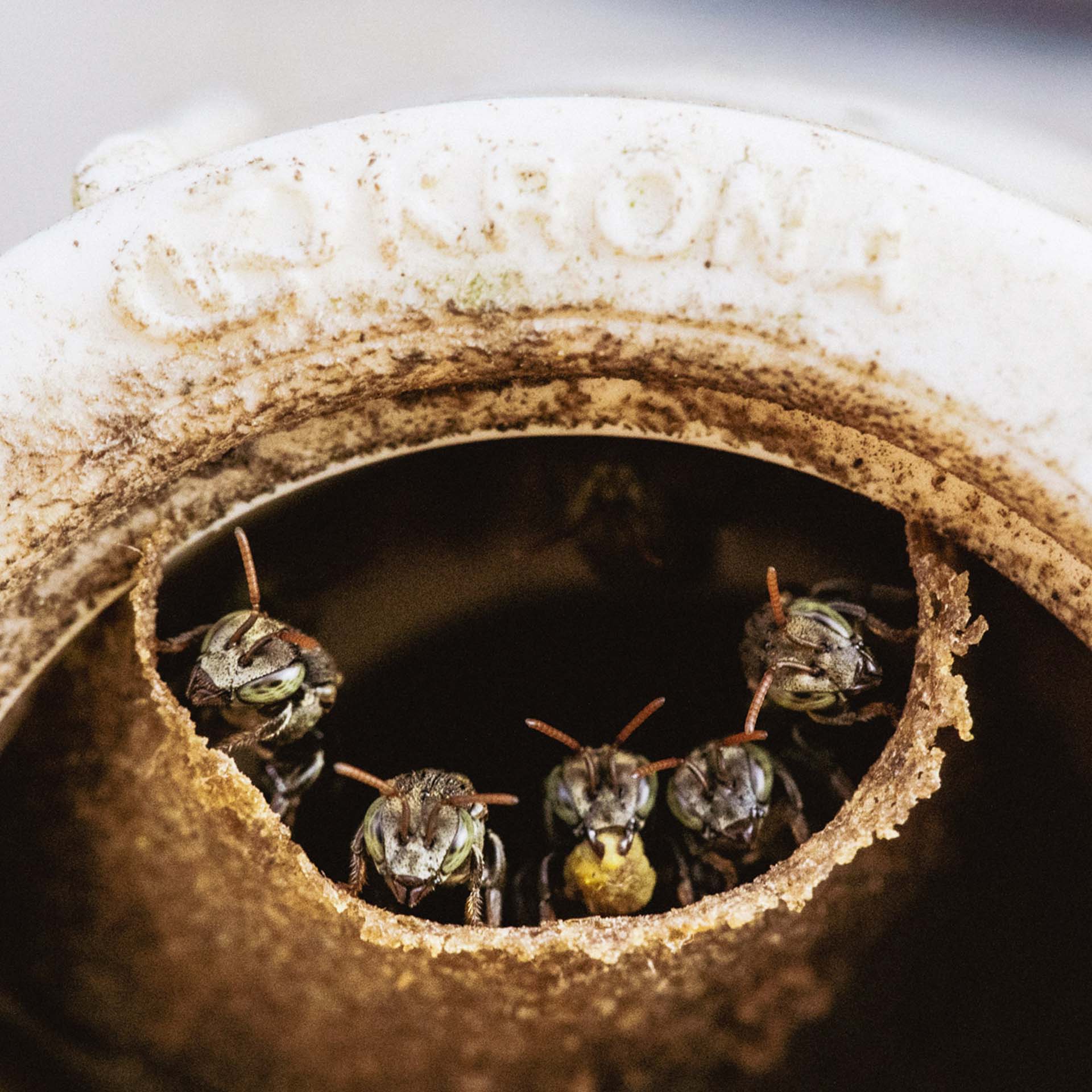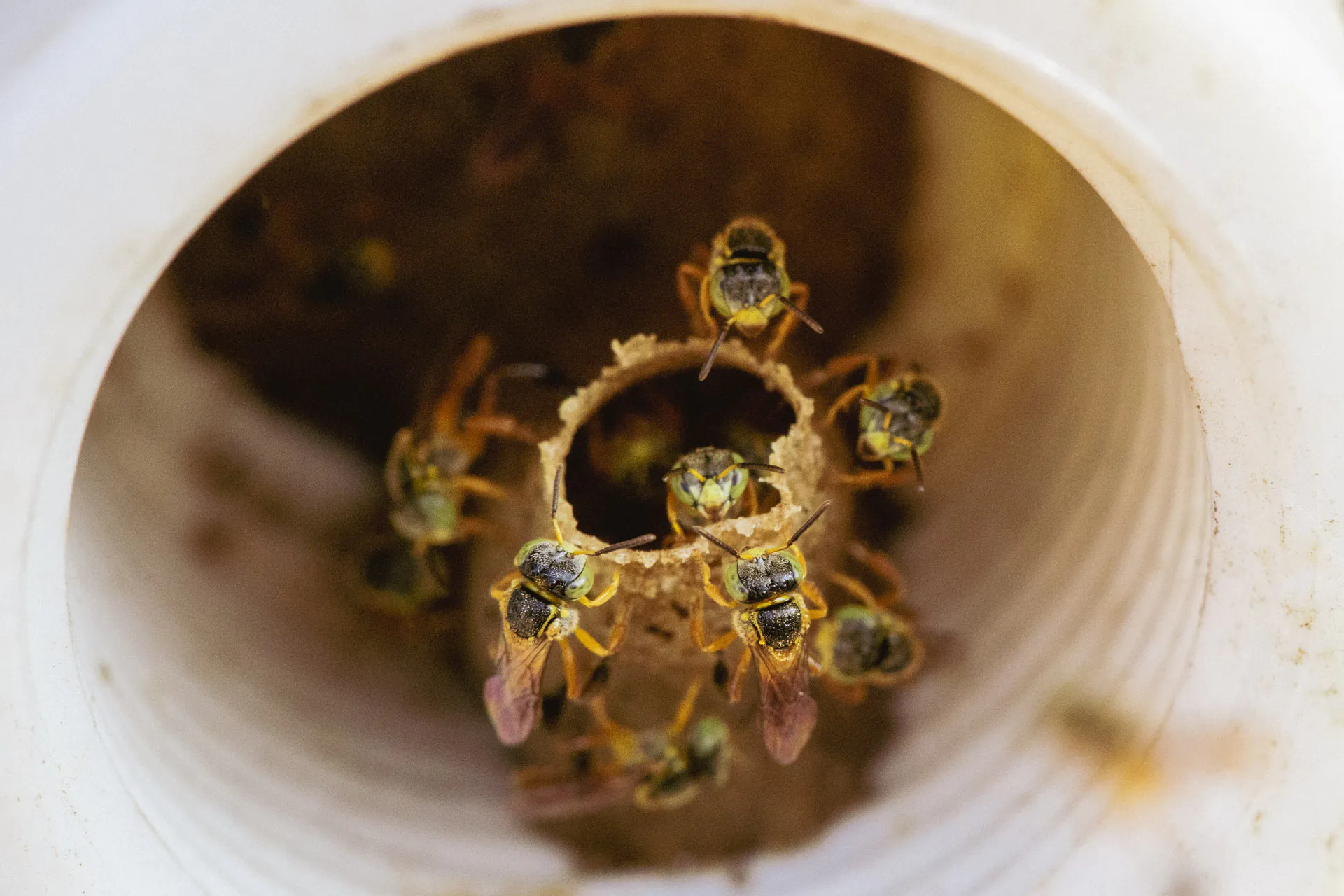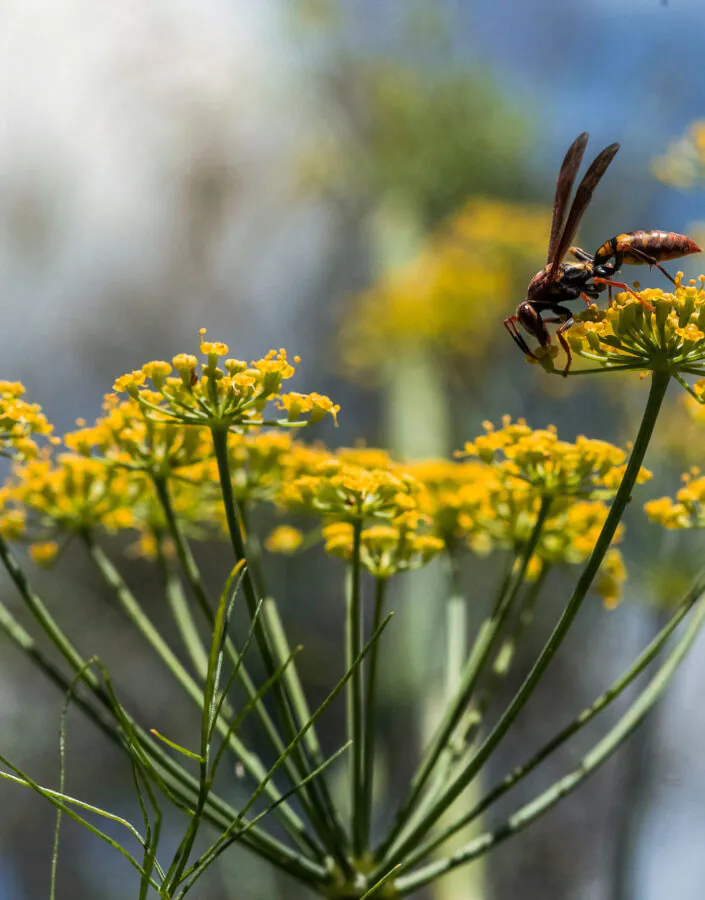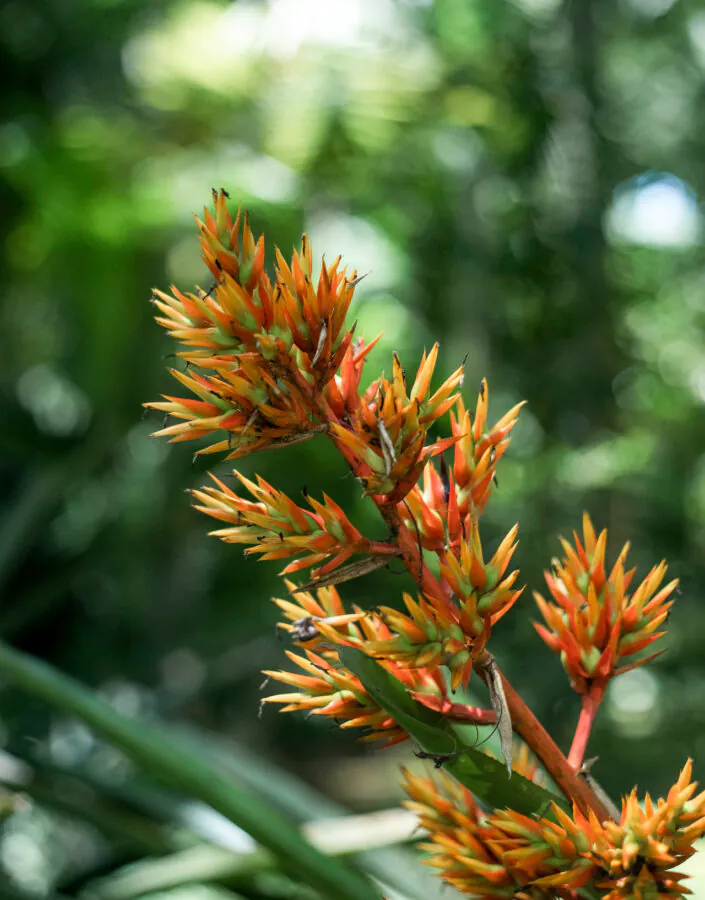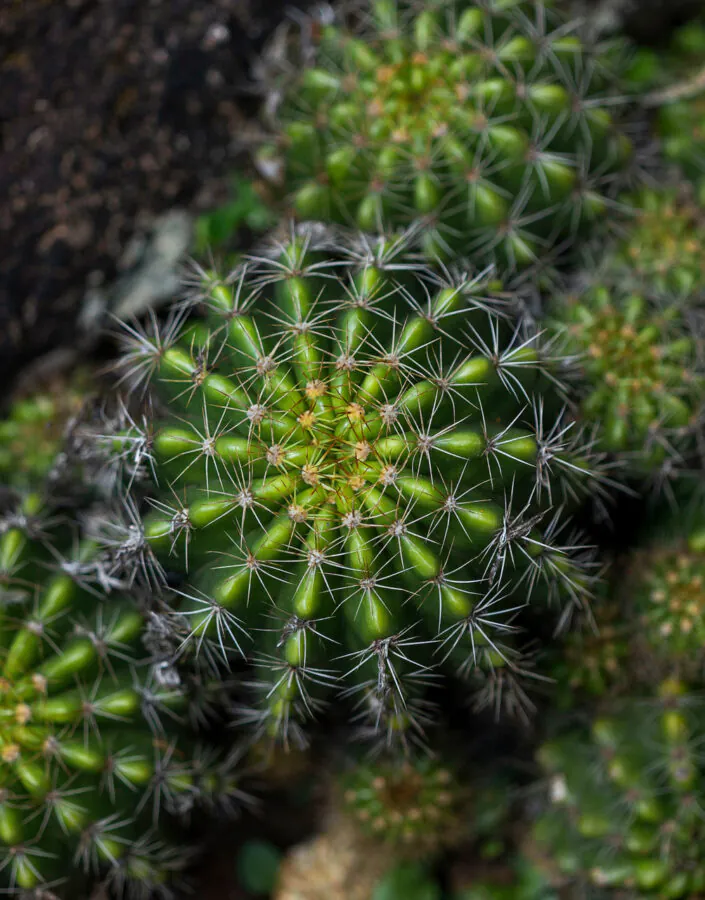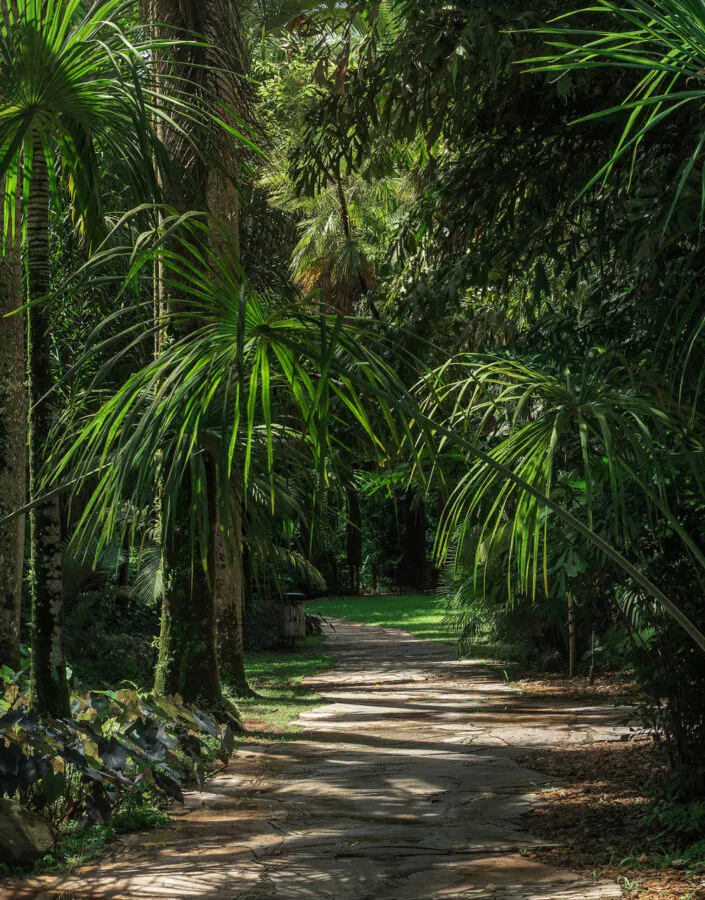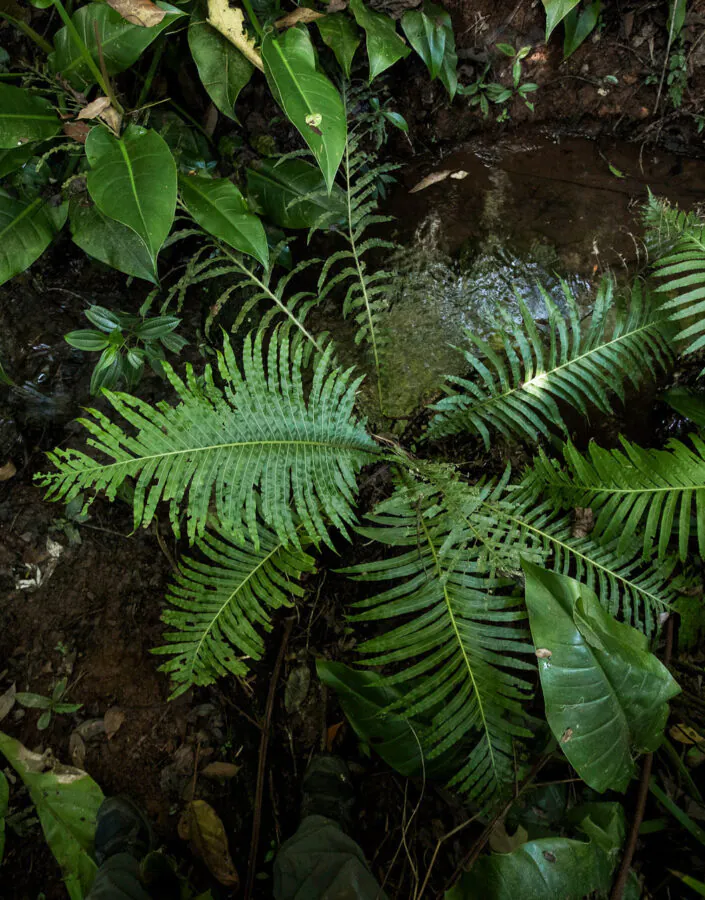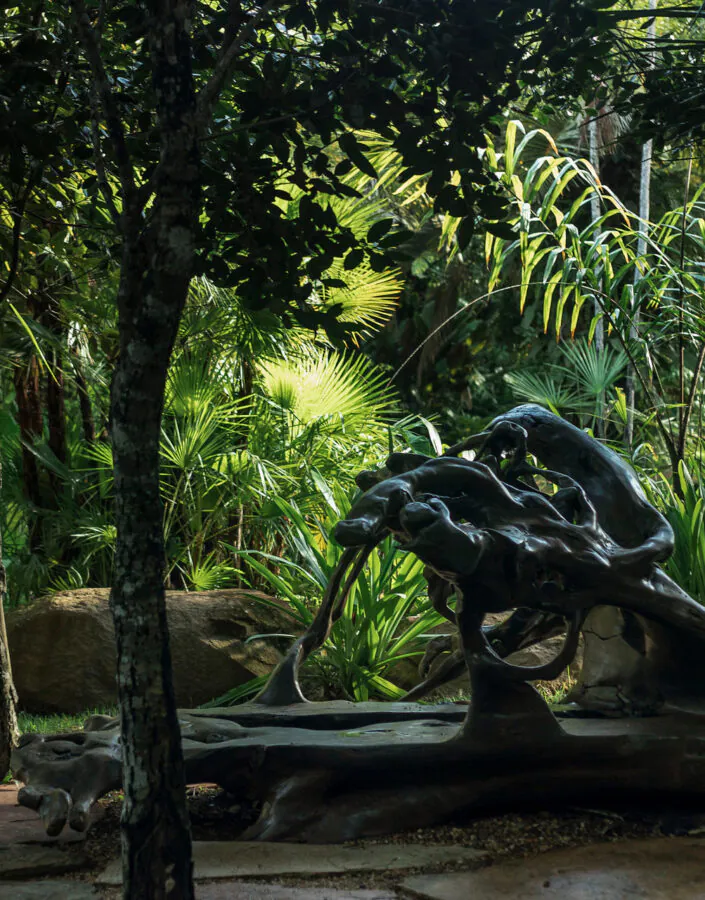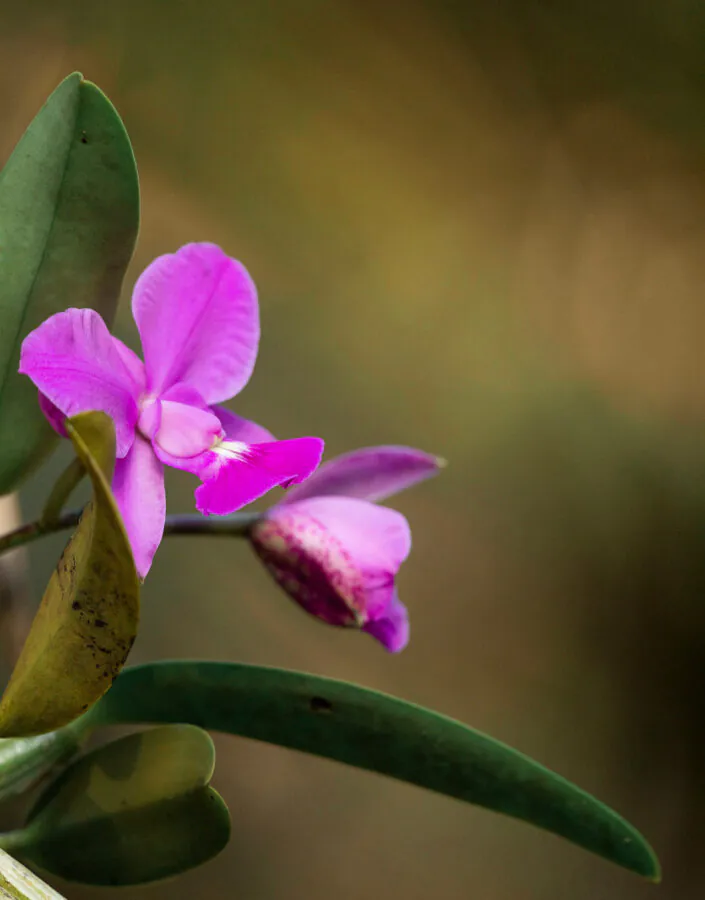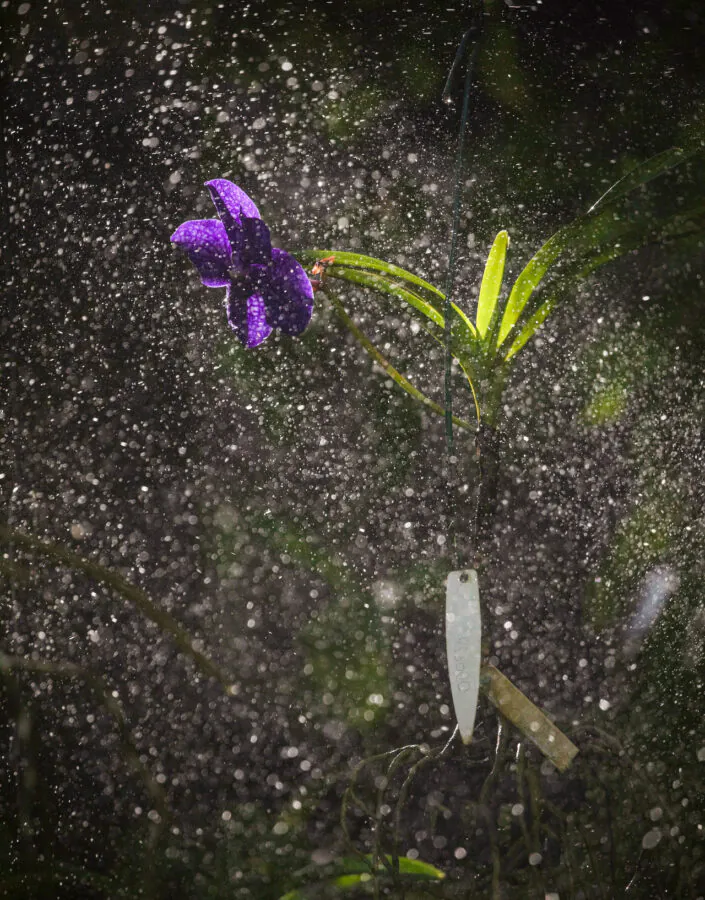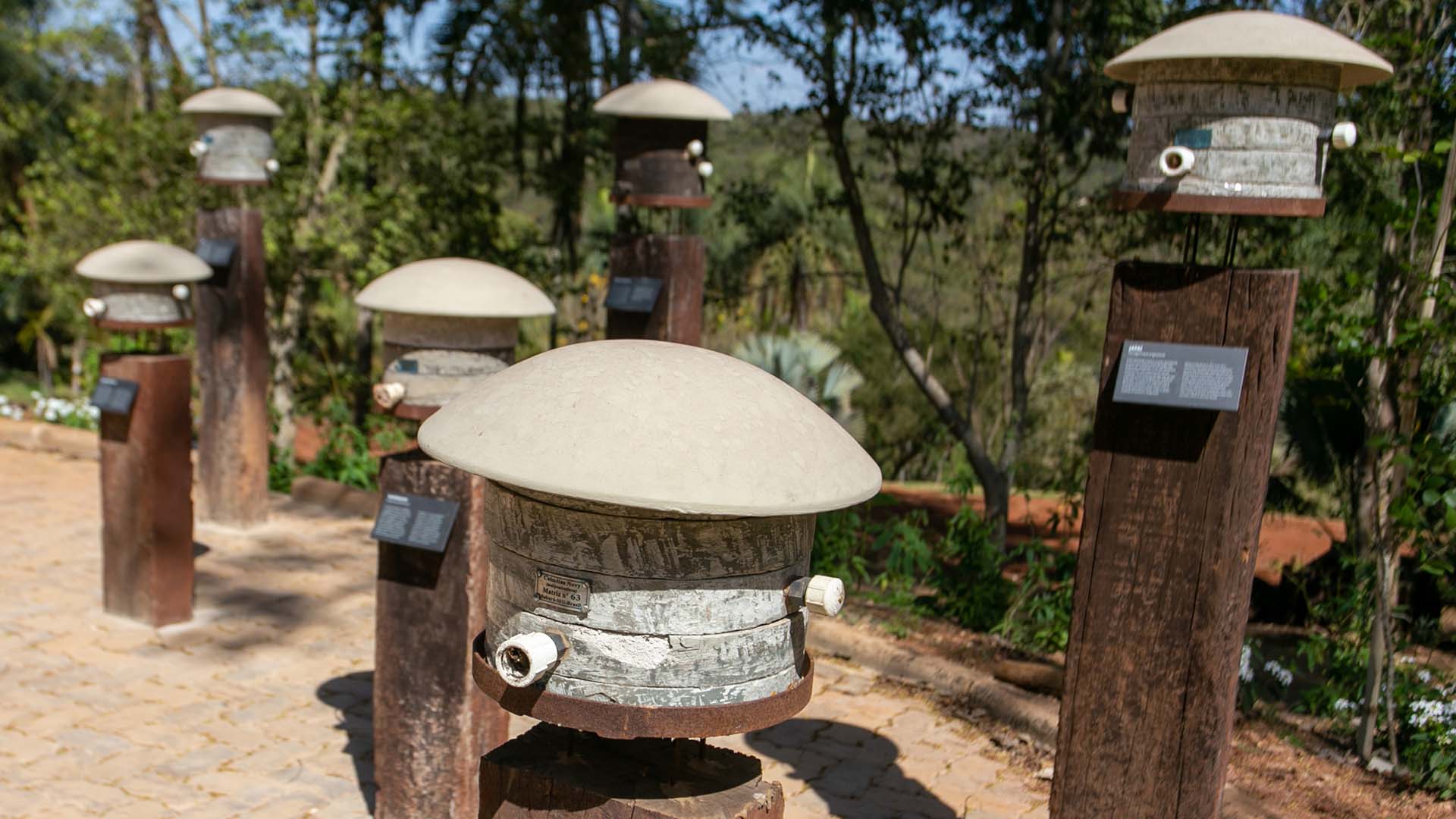
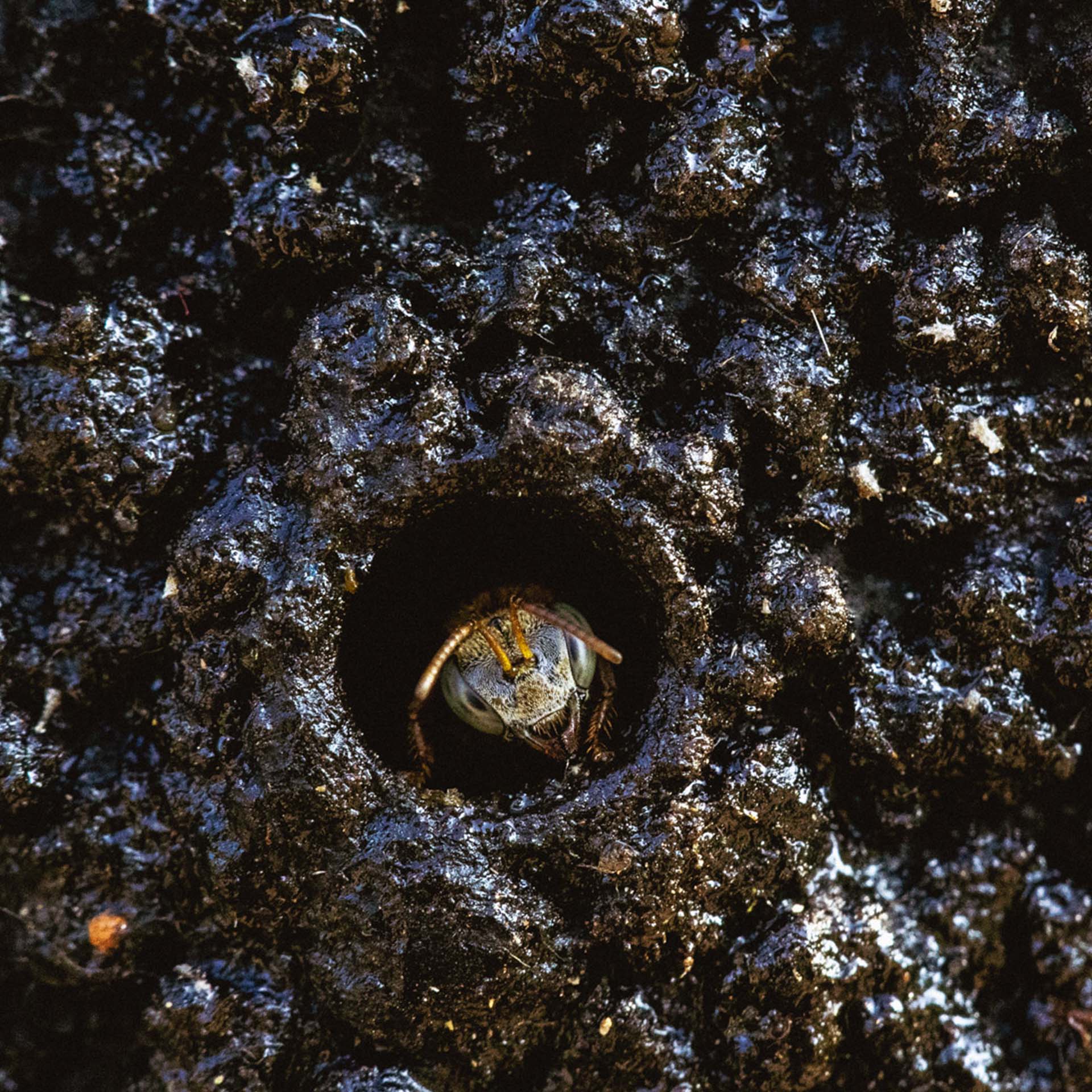
These small insects, such as the moça-branca (Frieseomelitta varia), visit more than 90% of all agricultural crops and pollinate 10% of the world’s GDP. Foto: Bruno Figueiredo/Área de Serviç
Stingless bees are the main pollinators of native flora. There are many striking examples of co-evolution between these insects and plants. Despite having such an important role, they are under serious threat.
An alternative for the conservation of these species, meliponiculture contributes to the balance of biomes and spreads knowledge about the diversity of native bees and the importance of protecting them.
At Inhotim, the Meliponary is exclusively focused on the conservation of species popularly known as iraí, jataí, mirim-droriana, mandaçaia and moça-branca. Honey and other byproducts are not extracted from the hives. The Meliponary was opened to the public in 2022.
